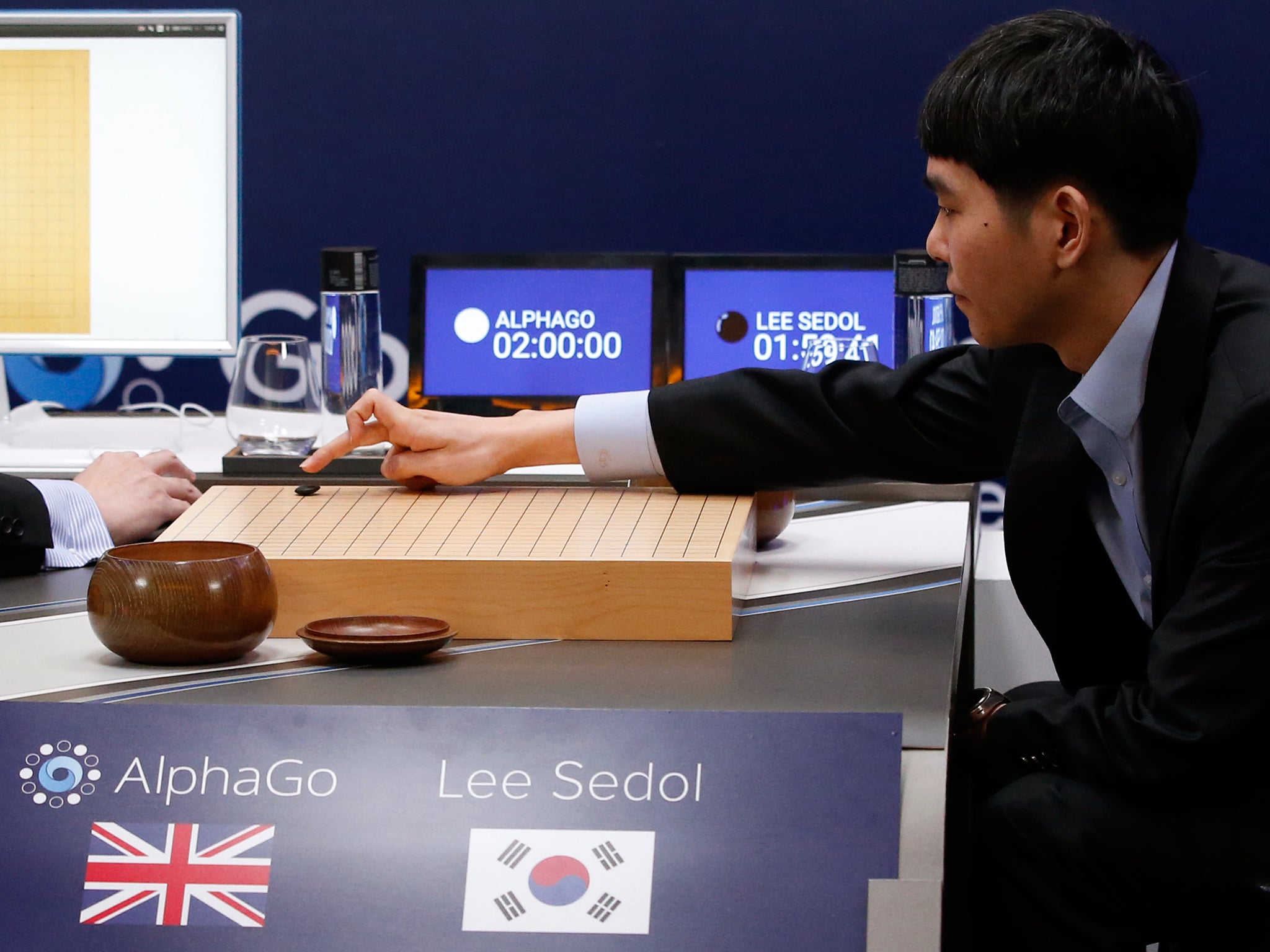Google DeepMind computer beats Go champion Lee Se-dol in shock 4-1 victory
Some had thought that Mr Lee's clawing back of the fourth game could indicate that he was learning how the computer worked – but the final game ended in a victory for AlphaGo

Your support helps us to tell the story
From reproductive rights to climate change to Big Tech, The Independent is on the ground when the story is developing. Whether it's investigating the financials of Elon Musk's pro-Trump PAC or producing our latest documentary, 'The A Word', which shines a light on the American women fighting for reproductive rights, we know how important it is to parse out the facts from the messaging.
At such a critical moment in US history, we need reporters on the ground. Your donation allows us to keep sending journalists to speak to both sides of the story.
The Independent is trusted by Americans across the entire political spectrum. And unlike many other quality news outlets, we choose not to lock Americans out of our reporting and analysis with paywalls. We believe quality journalism should be available to everyone, paid for by those who can afford it.
Your support makes all the difference.Google’s Go-playing computer has definitively beaten the best human in the world, finishing a pioneering match at 4-1.
For the past week, AlphaGo has been playing grandmaster Lee Sedol, one of the top Go players in history. The victory has been hailed as a huge leap forward for artificial intelligence systems of the kind built by DeepMind, Google’s artificial intelligence team.
The ancient Chinese board game had been seen as too complex for computers to master. Just months ago, artificial intelligence experts said that we were at least 10 years from creating a computer powerful enough to beat the best humans at the game.
But Go fans across Asia were astonished when Lee, one of the world's best Go players, lost the first three matches.
Lee beat AlphaGo in the fourth match. He said he had found weak points in Google DeepMind's artificial intelligence programme which showed the machine was not infallible.
Some had thought that could mean that Lee would go on to win the fifth game, too, and that AlphaGo’s victory in the first three games was the result of its eccentric and non-human playing style. But the Google computer dispelled those doubts, winning the fifth game after in a tense and long showdown.
Google wants to use AlphaGo beyond games, ultimately to solve real-world problems. The computer has been widely seen as proof that artificial intelligence machines could go on to master characteristics that were previously thought to belong only to humans, like intuition.
Additional reporting by Press Association
Join our commenting forum
Join thought-provoking conversations, follow other Independent readers and see their replies
Comments